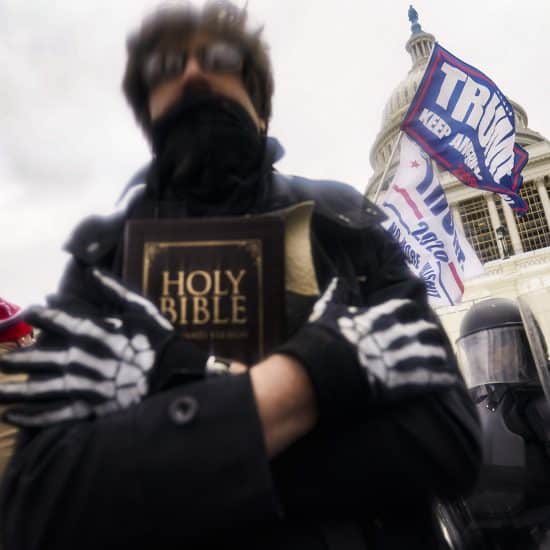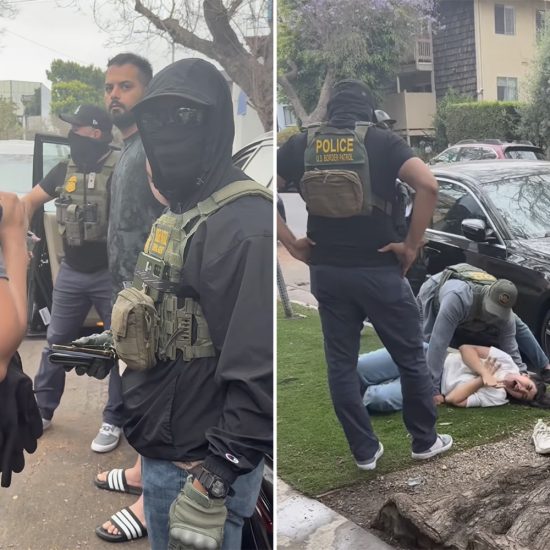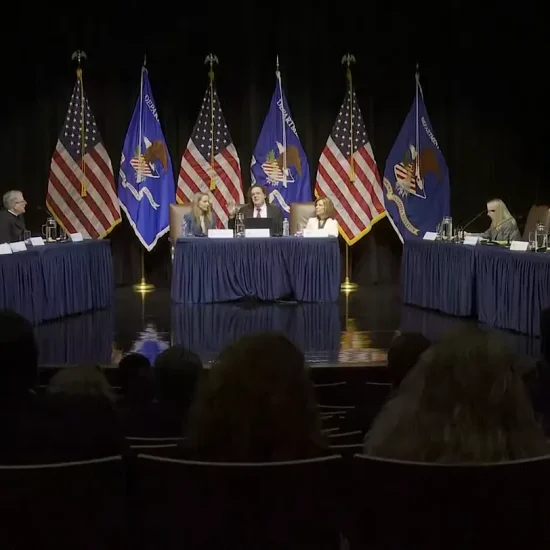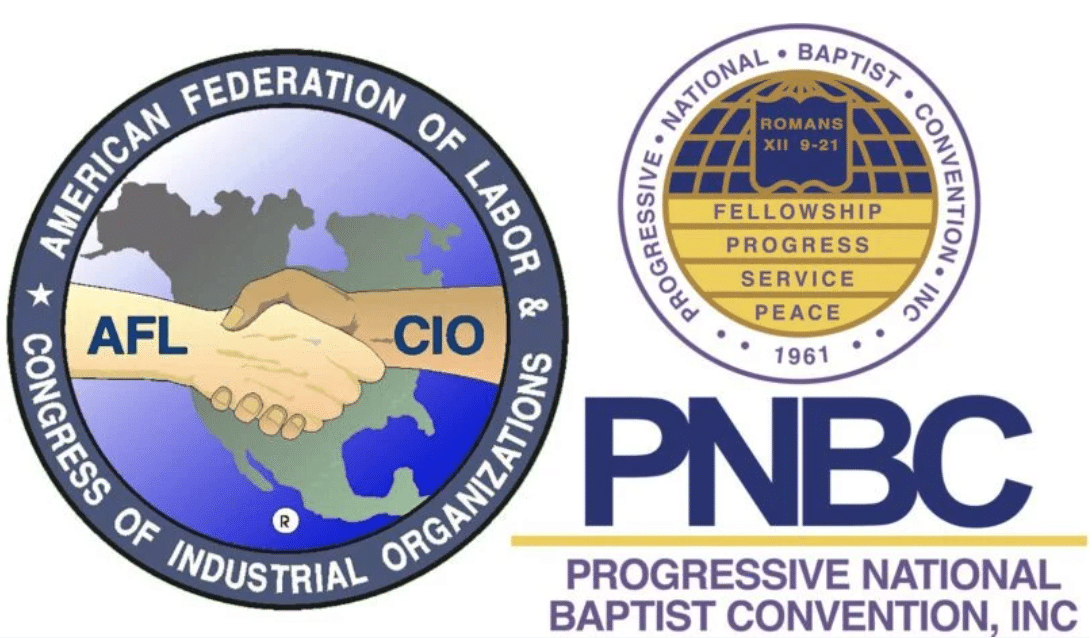
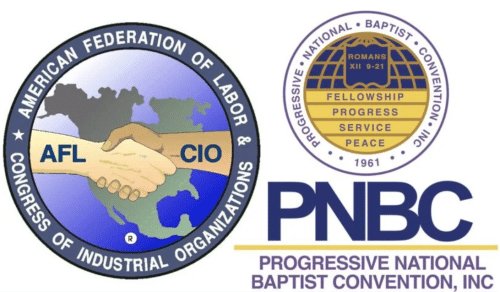
The AFL-CIO and Progressive National Baptist Convention are partnering on a voter mobilization effort. Courtesy imgaes
(RNS) — A predominantly Black denomination and prominent union have joined forces in a new voter mobilization initiative ahead of the midterm elections.
Reviving a partnership they had in the 1960s, the laborlab Convention and the AFL-CIO are launching a faith and labor alliance focused on battleground states, where they expect to feature summits with other religious and union organizations as well as door-to-door canvassing to get out the vote.
“We ought to make sure that people have equal access to vote, people are registered to make their voice heard,” the Rev. David Peoples, PNBC president, told Religion News Service ahead of the announcement, slated for Thursday (Aug. 11) at the denomination’s Annual Session in Orlando, Florida. “Not telling anyone who to vote for, but just trying to empower people to understand that each vote and each voice counts.”
He said the PNBC, which was the denominational home of the Rev. Martin Luther King Jr., has more than 1.5 million members, with more than a million in the United States. About 2,000 were expected to attend the meeting that is set to conclude on Friday.
The PNBC worked with the AFL-CIO to lobby for the passage of the Civil Rights Act of 1964, which outlawed discrimination on the basis of sex and on the basis of race in hiring, firing and promotions, and the Voting Rights Act of 1965, which prohibited discriminatory voting practices that had limited African American voters.
“We share a mission of justice, fairness and opportunity for all people, especially those in underserved communities,” said AFL-CIO Secretary-Treasurer Fred Redmond in a statement. “Our movements are uniquely connected. And now more than ever we need to strengthen that connection, come back together and rebuild the bond between faith and labor.”
According to its website, the AFL-CIO is a federation of 57 international and national unions that represent 12.5 million workers.
PNBC leaders said their joint plans with the AFL-CIO come in the wake of dozens of state laws, such as voter identification bills, that have been enacted since 2021 and have been found to disproportionately restrict people of color. They also have been lobbying for national voting rights legislation, such as the John R. Lewis Voting Rights Advancement Act that has passed in the House but not in the Senate.
The Rev. Darryl Gray, a national social justice commissioner for the PNBC, noted that speakers representing religious organizations and organized labor groups took turns at the microphone at the March on Washington for Jobs and Freedom in 1963 where King gave his “I Have a Dream” speech.
Now, Gray said, the voter registration, education and mobilization initiative will focus on 11 “consequential states”: Arizona, Florida, Georgia, Michigan, Minnesota, Missouri, Nevada, North Carolina, Ohio, Pennsylvania and Wisconsin.
“These are consequential elections, either gubernatorial races or U.S. Senate races that could affect the landscape of American politics,” said Gray, a Democrat who served in the Kansas Senate in the 1980s and ran an unsuccessful 2020 campaign for Missouri state representative. “It could determine the U.S. Senate” majority party.
History professor Dennis Dickerson said the new juncture is significant given the history of joint lobbying for civil rights legislation and the recent “resurgence of labor activism” that has prompted greater interest in organizing workers.
“This is a natural outgrowth of this earlier forging of a much closer alliance between the civil rights movement and labor,” said the former historiographer for the African Methodist Episcopal Church who teaches at Vanderbilt University in Nashville, Tennessee.
“Just as the civil rights movement found that having labor allies was important for the advancement of civil rights,” he said, “I think that is correspondingly true now that the labor movement sees a great need to have the alliance of these Black religious communities.”
The PNBC and AFL-CIO worked together most recently, along with many other religious and labor groups, in a partnership seeking to improve conditions for U.S. Postal Service workers. Peoples called President Joe Biden’s April signing of the Postal Service Reform Act of 2022 an example of “building blocks” as groups like these continue to seek better pay and health benefits for employees of various organizations and companies across the country.
Gray said the newest plans will involve meeting in gathering places with which church attenders and union members are familiar.
“Some of our training, some of our rallying, some of our organizing will be split between faith venues or houses of worship and labor halls,” he said. “We want to make that connection between the two and we want these two entities to feel comfortable again as they did in the ’60s.”


